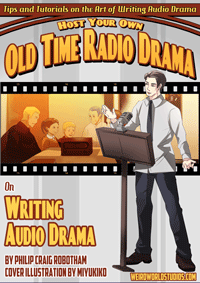How to Decide on the Optimal Cast Size for your Scripts
HOW TO CHOOSE THE OPTIMAL CAST SIZE FOR YOUR SCRIPTS… WRITING FOR INFINITE VOICES Ultimately, the cast you need is the cast necessary to tell your story. That said, there are a number of practical considerations that should be taken into account when writing for audio. MANAGING MEMORY This week I’m throwing in some quick […]

